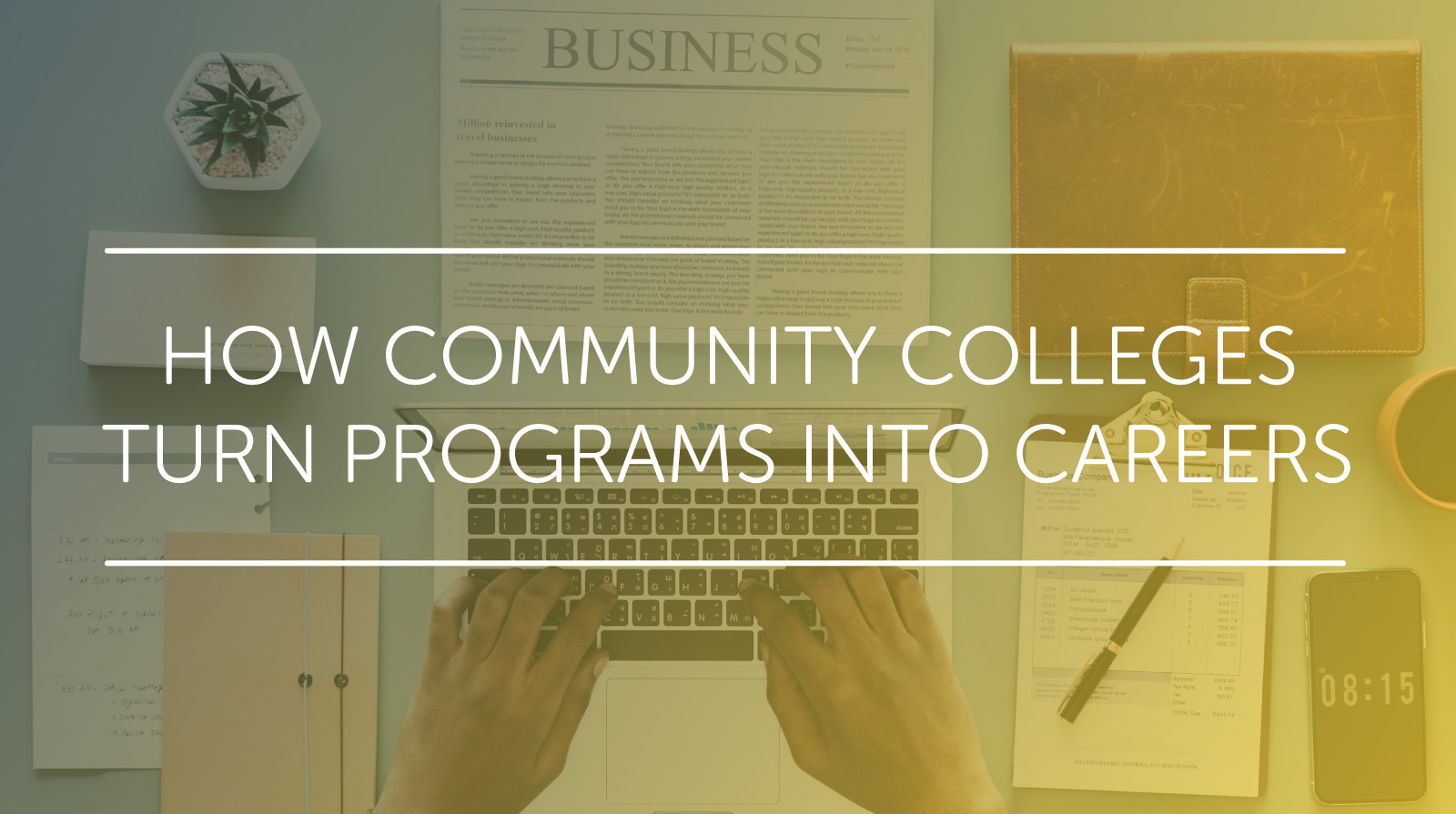Community colleges equip students for employment through practical experience.
Learning for its own sake will always be an ideal, no matter the educational institution in question. But many students are also motivated by learning that can directly lead to careers. Rather than spend a lifetime academia exploring the outermost edge of a field, they want to put their skills to practical use.
This is an admirable goal, and one that community colleges are especially situated to serve. While community colleges offer a low-risk way for students to explore subjects of interest, they also direct learners toward paths that have high employment prospects. As a result, career-oriented individuals can enter the workforce or progress to other educational institutions with a hands-on level of knowledge that serves them well in real-life scenarios. Here are just a few of the ways community colleges make this happen.
Community college programs focus on highly-employable “skills gap” trades.
Throughout the country, many industries are suffering from what’s known as a “skills gap.” These trades, which include electricians, plumbers, and nurses, provide good incomes and high job stability, but are currently experiencing a shortage of qualified workers.
Community colleges know this, and therefore focus many of their programs on attracting students who might be good fits for these professions. Certifications or associates degrees in these skills can be accomplished in far less time—and at far less cost—than four-year university degrees, but are often overlooked.
By diverting resources toward promoting these programs, community colleges are able to train students in skills that will help them gain and retain employment for years to come.
Community colleges run work placement programs with local industries.
Many companies struggle to find qualified workers to fill their positions. Meanwhile, many people in communities all across the country suffer from unemployment or underemployment. Ideally, this latter group could fill the needs of the former, but they lack the skills necessary to do so.
Fortunately, many community colleges work with local industries to run work placement programs. These businesses donate equipment to the college, run internships, and recruit from the student body. Meanwhile, the community college can offer more secure employment prospects to students who complete the course given the connections with employers.
Community colleges place a priority on career counseling through the program.
Many universities take a step back from career counseling, allowing students the freedom to explore options and decide what they want for themselves. Unfortunately, at large institutions, this can come at a great cost to students. It’s wonderful to leave your degree course undecided for a couple years if you can afford it, but students who are eager to enter the workforce are often looking for a more direct course.
Community colleges are more used to working with this type of student, and can offer direct guidance, complete with the latest employment data, to students at every stage of their educational career. While students entering a four-year institution often spend more time worrying about receiving an acceptance letter than planning their career path, students at community colleges benefit from being able to talk through an entire two-year associate’s degree while they’re still in the decision phase.
Furthermore, once students have entered the community college system, they have increased access to counselors who can help them make decision that will improve their employment upon graduation. For job-oriented students, a job-oriented program is the perfect match.
Community colleges support program changes and cross-disciplinary study.
That said, community colleges also provide a low-risk way for students to assess various course options before having to decide on a final option for themselves. They can dabble in humanities courses, language classes, biology, government, mathematics, car repair, and culinary arts, all at much lower expense than a university.
The broad exposure to multiple disciplines helps students approach their eventual course with more confidence, sure in the knowledge that they tried all their options. And while many universities offer general education credits for just such a reason, few of them offer credits in the trade skills that may be an exceptional match for a student, even if they display talent in other directions.
In short, students who take time to explore degree and career options at a community college not only feed their curiosity, they also save long-term on student loan costs.
Community colleges have smaller class sizes, leading to more personal direction.
Finally, community colleges are more likely to have intimate class settings, leading to closer bonds with teachers and fellow students. This pays off in many ways. From a student perspective, the close contact with classmates from all walks of life helps expand their experiences and connect with diverse groups of people.
Meanwhile, the more accessible nature of teachers at community colleges gives students extra motivation to pull ahead, and teachers can often provide students with personal help that they might not get from a professor at a large university setting. Both these experiences combine to form situations where students have support to continue their degree and succeed in their chosen career.
Community colleges know how important careers are to their students.
There’s a reason community colleges focus so much on careers, and it mostly boils down to their students. Community college students are mission-oriented: their goals are set in the very near future, and they want to get their quickly.
For the community as well, more qualified workers with the skills necessary to fill jobs and grow the economy are a huge asset. So, for community colleges, a focus on careers helps attract motivated students, fill local jobs, and create economic stability for regions that desperately need it.
CareerFocus helps community colleges draw attention to career programs through print publication, online micro sites, and digital marketing campaigns. If you would like to learn more about how our services can benefit your college, contact us today.


